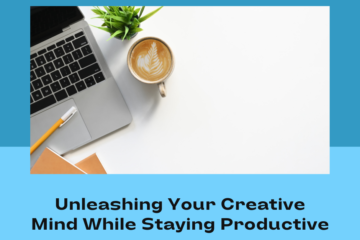
Introduction:
Learning strategies for managing stress has never been more vital than in today’s fast-paced world. The complicated web of modern work, with its cutting-edge tools, constant connectivity, and constant need to stay ahead, makes it hard for workers to do their best. The stresses at work are huge and come in many forms, such as looming deadlines, rising goals, and high standards of performance. Even though the causes and triggers of stress are different for each person and job, the effects of long-term stress are always bad: mental tiredness, emotional turmoil, and even physical illnesses. Even though things are hard, there is hope. If you have the right tools and knowledge, you can not only handle these stresses, but you can also build resilience, which means that failures can be used as chances to grow. The modern workplace has changed a lot, but this article shines a light on doable strategies based on mindfulness and self-care that will help you not only survive the daily grind but really thrive in spite of it.
1. The Power of Mindfulness
Mindfulness is not just a passing fad; it’s an old practice that has become more important in today’s busy world. Mindfulness is based on the simple but deep act of focusing on the present moment and nothing else. By doing this, you create a strong link with the present moment and separate yourself from regrets and worries about the future. Being present on purpose offers a safe haven from both internal and external chaos, making it a powerful way to relieve stress.
a. Mindful Breathing
It’s easy to forget to breathe in the middle of all the things you have to do every day. The breath isn’t just an unconscious need, though; it’s also a way to become more aware.
The Science Behind It:
Focused, deep breathing activates the parasympathetic nervous system. This is the system that helps you relax and lowers the stress hormone cortisol. In other words, just by controlling your breath, you can physically fight off stress signs.
Technique:
Try to find a quiet place and get relaxed, whether you’re sitting or lying down. Close your eyes to block out outside noise. As you take a deep breath in, picture the air as a healing force that fills your lungs and feeds your body. As you let out your breath, picture letting go of worry, tension, and bad feelings. Take a moment to focus on each breath. Feel your chest rise and fall, the cool air coming in, and the warmth leaving your body as you breathe out. By keeping your attention on the breath, you can find peace in the middle of stress.
b. Mindful Breaks
Long hours of work without a break are not a sign of commitment; they lead to burnout. Taking regular breaks and being aware can help you think more clearly and get more done.
The Science Behind It:
Our brains aren’t built to focus for long periods of time. Taking breaks can keep you from getting tired of making decisions and losing your mind’s sharpness, so you can keep up your performance all day.
Technique:
Take a short break from your work every few hours or when you start to feel tired of the same things. Forget about being slouched for too long and stand up. Stretch out and loosen up. Go for a short walk, maybe to the window or outside. Keep your attention on the moment as you move. Feel the ground under your feet and pay attention to the sounds around you, like the hum of machinery in the distance, the talk of coworkers, or the birds singing outside. Pay attention to the way your body feels, the beat of your heart, and the pattern of your breath. This focused break is like a reset button that gets you ready for what’s next.
2. Self-Care Practices

Self-care is very important in a time when the “hustle culture” often praises working too much. The act of taking care of yourself is not a luxury; it’s an important part of overall health, especially in today’s high-stress world. By planning purposeful self-care routines, you make your mind, emotions, and body stronger to handle the challenges of daily life. Here, we go into detail about some important self-care habits and how they can help you.
a. Scheduled Downtime
With all the meetings, chores, and due dates, it’s easy to forget to take time for yourself. But putting off self-care over and over again can cause stress and less work getting done in the long run.
The Importance of Downtime:
Just like our bodies, our brains need to rest. Our brains need time to process knowledge, build memories, and recharge. During these times of purposeful relaxation, we often come up with new ideas, find answers to problems that won’t go away, and get clear on personal and professional issues.
Technique:
These days, our plans tell us a lot about our days. Use this to take care of yourself. Set aside specific amounts of time that are just for you. This could be a 30-minute window after lunch or an hour in the evening. Take a break from work and technology during this “me time.” Do things that are good for your mind and soul. This could be doing something like meditating, reading a book, playing an instrument, or even just thinking. Being alone and taking the time to relax on purpose are like a balm for the mind and body.
b. Healthy Eating and Hydration
“You are what you eat” is a very true saying. What we eat and drink has a direct effect on our energy, mood, and ability to think clearly.
The Role of Nutrition:
A healthy, well-balanced diet full of important nutrients helps the brain work, keeps your mood in check, and gives you long-lasting energy. On the other hand, eating a lot of processed foods, sugars, and bad fats can make you tired, have mood swings, and feel more stressed.
Technique:
Balanced meals with a mix of proteins, healthy fats, complex carbs, and lots of veggies should be your top priority. Put healthy food like yogurt, nuts, and fruits at your desk. These can help you get more energy quickly and avoid the midday slump. Also, staying hydrated is very important. Dehydration can make it hard to focus, make you feel more stressed, and make you tired. If you need to, set alarms to remember you to drink water throughout the day. Aim for at least 8 glasses.
c. Physical Activity

There are more perks to being active than just being healthy. Working out is a powerful way to deal with stress, worry, and even depression.
The Science Behind It:
Endorphins are the body’s natural painkillers and mood boosters that are released when you exercise. These chemicals make you happier, less stressed, and better able to sleep. Also, exercise brings more blood to the brain, which improves memory and thinking skills.
Technique:
Even though sticking to a workout plan is good for you, not everyone can make time for a full-on gym session every day. Instead, do short spurts of movement throughout the day. A quick 10-minute walk after lunch, a short yoga sequence in the morning, or even just stretching every so often at your work can make a big difference. It’s important to be consistent and make sure you move your body, which is good for your mental and physical health.
3. Setting Boundaries

These days, our world is so linked that it can be hard to tell the difference between work and personal life. Still, it’s important for mental health, work-life balance, and general well-being to set limits. Without clear limits, the chances of burnout, anger, and long-term stress go up by a huge amount. We’re going to talk about why setting limits is important and how to do it right here.
a. Manage Expectations
One of the main causes of stress at work is the never-ending list of chores and responsibilities. A lot of the time, this burden builds up because people can’t or won’t say what their bounds are.
The Value of Clear Communication:
Being honest about your strengths and weaknesses doesn’t mean you’re not competent. Instead, it shows that you are self-aware and want to do good work without putting your health at risk. You can protect your mental health and keep the quality of your work high by knowing and sticking to your limits.
Technique:
Checking in with your bosses or team often is very helpful. It’s important to let someone know if the stress of too many chores is getting too much for you. Make an appointment to meet or talk with your boss. Describe the work you have to do and the problems it causes. Talk about possible solutions, such as delegating tasks, extending dates, or even changing the order of tasks.
It is important to know that saying “no” does not mean you are weak or unwilling. You do it to protect yourself and to show how much you value the quality of your work. Over time, being clear about your limits can help people respect each other and even make the team work better.
b. Digital Detox: Strategies for Managing Stress
The rise of digital technology has made life more connected and efficient, but it has also taken away personal time. It can be mentally taxing to give in to the constant beeps of messages, social media feeds, and emails.
The Consequences of Constant Connectivity:
Being online all the time makes it hard to tell the difference between work and play. This constant activity can make you mentally tired, make it harder to concentrate, and make you feel more stressed. It also keeps people from getting the much-needed breaks that their brains need to recharge and work at their best.
Technique:
A digital detox is based on being intentional. Set aside times during the day to “digitally check in.” For example, do this once in the morning, after lunch, and right before you log off for the day. During these times, you can check your email, reply to emails, or do other digital tasks. When these times are over, log out of your email, silence messages that aren’t important, or even use apps that block sites that are distracting.
Setting aside certain times, especially before bed, as “digital-free” zones is another good idea. Take a break from your computer and engage in offline activities like reading, journaling, or simple relaxation. Taking these breaks from technology on purpose helps your brain reset, which lowers stress and boosts general brain function.
4. Stay Connected
People are naturally social creatures. Meaningful relationships are important for our mental and emotional health, no matter if we like being alone or with other people. Having a solid support system can be very helpful, especially in tough places like the modern workplace, where stress and demands can be very high.
The Therapeutic Power of Human Connection:
Neurochemicals like oxytocin and endorphins can be released during short or seemingly unimportant social interactions. These chemicals can help reduce stress and make you feel like you belong and are happy. On the other hand, being alone, especially during hard times, can make worry, anxiety, and feelings of being overwhelmed worse.
Technique:
It’s more than just networking to build and maintain ties at work. Making real relationships is what it’s all about. Start by being genuinely interested in the people you work with. This doesn’t need any big actions. Sharing a coffee break, asking about their weekend, or talking about things that aren’t connected to work can help people become friends.
Go on trips with your team, do activities with other people, or even start a lunch club where people share their favorite foods or takeout. These shared events help people understand each other and give them a safety net. During times of stress, having a trusted coworker to talk about problems with or just to laugh and have a good time with can help relieve the pressure and give you a new viewpoint.
5. Seek Professional Help

There is a bad reputation attached to getting professional help, mainly when it comes to mental health. But just like you would see a doctor for a physical problem, it is smart and necessary to talk to a mental health worker when you are under a lot of stress or emotional turmoil.
The Need for Expert Intervention:
When you don’t do anything about it, chronic stress at work can lead to more serious mental health problems like anxiety disorders, sadness, and burnout. It is important to know the difference between “normal” stress and “chronic” stress. Symptoms can include constant feelings of overwhelm, tiredness, irritability, trouble sleeping, and a big drop in how satisfied and productive you are at work.
Technique:
Going to therapy or counseling isn’t a sign of weakness; it’s a positive step toward overall health. Psychologist and counselors are trained to help people by giving them insights, ways to deal with problems, and methods that are specific to their needs.
Do some study on licensed counselors or therapists in your area to start. A lot of companies also have programs called Employee Assistance Programs (EAPs) that give confidential counseling. Once you’re involved, be honest and open about how you feel, the problems you’re having, and your worries. Therapy is a joint process, and how well it works will depend on how much you do it.
Also, for people who aren’t sure about standard face-to-face sessions, many digital platforms offer online therapy sessions that are flexible and private.
Conclusion:
Stress is a pervasive aspect of modern life, particularly in the workplace. However, it doesn’t have to dominate our existence. Mindfulness practices, rooted in ancient wisdom and modern science, provide a sanctuary from past worries and uncertainties. These practices guide us through work pressures and personal challenges. Self-care is crucial in combating stress, as it recognizes our intrinsic worth and the importance of our well-being. Nurturing our physical, emotional, and mental health builds resilience and equips us with vitality for the professional landscape. The journey towards resilience doesn’t need to be undertaken alone; support from colleagues, friends, and professionals can illuminate paths and celebrate milestones. True success transcends professional achievements, and genuine fulfillment and contentment come from a life lived with balance, where self-care is a foundational principle.



0 Comments